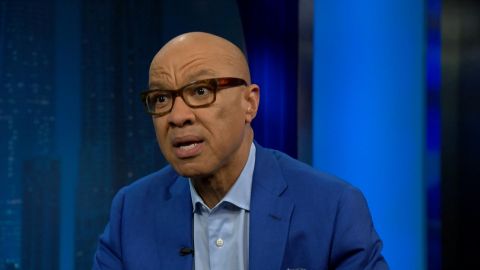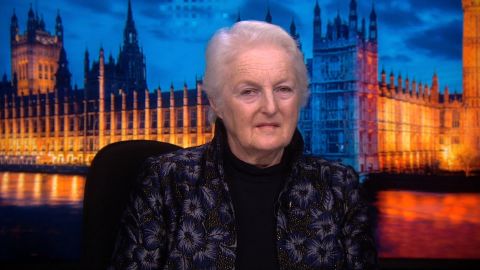Read Transcript EXPAND
DAVID GERE, DIRECTOR, UCLA ARTS AND GLOBAL HEALTH CENTER: So, it was about 10 years ago, I want teaching a course at UCLA. I run the Art and Global Health Center there. And in the middle of that course, my colleague and my friend, Robert Sember, handed me a book. And the was called “A Broken Landscape” with photographs by Gideon Mendel. And I thought that the photographs he was producing were incredibly extraordinary because they did not victimize people living with HIV. Instead, they provided a sense of agency and also love and compassion, which really came through in these photos. But really importantly, alongside the photos were texts. And these first- person texts, these stories serve to humanize people living with HIV in a way that I thought was really unusual and rare and unique and essential. So, I called him and I found him in London. I called him. He answers the phone, I told him that I was working with my students and sharing his book with them. So, what ensued was a beautiful conversation and an invitation for Gideon to come and spend time with us in Los Angeles at UCLA and to begin developing a project which has now turned into the “Through Positive Eyes” concept, which is the book you’re holding in your hands.
CHRISTIANE AMANPOUR: The pictures are beautiful and the texts are really profound. You came to it through a personal, Richard, relationship. You had a friend who was a photographer and, as you say, was — had an irrational fear, at the time, of divulging it.
RICHARD GERE, ACTOR AND ACTIVIST: This is a story about real people. So, 1981, you know, we had friends who were sick at that point. So, we’ve seen this thing evolve. Now, we understand each other by how we feel about things. And even more so, how we feel informs how we create. And I think that David has done an extraordinary job, in all the work he’s done, whether it’s dance or it’s puppets or it’s theater. In this case, it’s photography for HIV-positive people to communicate with the world as human beings.
AMANPOUR: I even remember, obviously, when it was first discovered or at least first talked about, which was in the ’80s. Ronald Reagan was president.
RICHARD GERE: Who refused to even say the word.
AMANPOUR: Right. And, David, as well, you must remember how it was such a scary thing. The president refused to talk about it. It condemned so many people basically to death. I mean, who didn’t know how to say what they were going through, how ill they were or where to seek help.
DAVID GERE: Absolutely. You know, we know, again, from friendship circles how deeply affected people were.
About This Episode EXPAND
Michael Bloomberg’s campaign manager Kevin Sheeley discusses why the billionaire has jumped into the race. Actor Richard Gere and his brother, activist David Gere, discuss their recent work. Julia Neuberger, senior rabbi and member of the UK House of Lords, discusses antisemitism in the UK. Ford Foundation president Darren Walker talks how philanthropy can be a tool for achieving justice.
LEARN MORE



